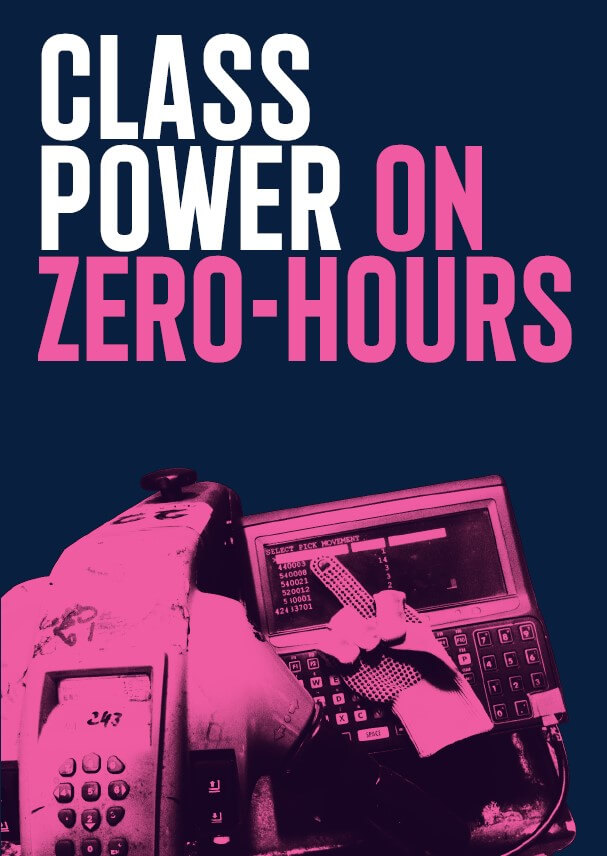
AngryWorkers is a collective that recently spent six years working and organizing in the logistics sector in West London. Across several workplaces, AngryWorkers developed a culture of analysis and supported workers’ independent self-organization through projects like a solidarity network, workplace groups and a local newspaper. Industrial Worker spoke with Kiran and Marco of AngryWorkers about Class Power on Zero-Hours, which reflects on their experiences and organizing strategy. The interview below has been edited for clarity and length.
Industrial Workers: What is a zero-hours contract?
Kiran: A zero-hours contract is a work contract where you don’t have a minimum number of hours that you have to work. Management can call you in when they like. It’s the most informal work contract, really.
Marco: It’s often through employment agencies. Sometimes they give you a seven- or 14-hour minimum per week, sometimes zero. It’s fairly widespread.
Could you give an overview of your approach to workers’ self-organization?
The first premise is to ask workers what is already happening. See what forms of organization already exist. Encourage a culture among coworkers to take all of this into account and see how we can further organize ourselves. Analyze the union and the law to determine when we might be able to open up some space by using the union and when we have to organize independently. Create a culture to analyze the work process and conditions, and then come up with proposals of organization: What can we do? How can we struggle?
Workers are facing a lot of pressure outside of the workplace. While we think the workplace is somehow the easiest, most organic point where different types of people are forced to come together and cooperate, our ability to do that is massively affected by our housing situation, the immigration system, etc. That’s why we decided to do the solidarity network at the same time: to try to develop the culture of working-class self-defense — that you don’t necessarily need some legal bigwig to help you. It’s about helping each other through direct action.
Why did you choose to “get rooted” in the logistics sector?
“Getting rooted” meant strategy beyond the two traditional approaches. For one, you start where you are, like on campus or wherever you end up once you finish university — bars, delivery services — which is fine, but these efforts remain local. We don’t really learn about the bigger picture. Or, on the other side, you have the Trotskyists who go into the main workplaces in Central London, like transport or the post office, with fairly traditional labor relations between union and management. They are in a bigger workplace, but it’s still fairly regulated, formal disputes.
We thought that logistics has an objective new quality. After the 1970s and ‘80s, bigger workplaces were dismantled and dispersed, and logistics basically brought that back together — supply chains, bigger warehouses, distribution centers. They grew, so there was a new workers’ power by concentration.
People often fall into the trap of talking about workers as robots or victims to the bigger system. They often come across as quite powerless, as in the Amazon write-ups. There’s the sense that they don’t have any power, when actually they do — it’s just not a given. You have to work there to see where the power could be.
Interested in learning more? Find Class Power on Zero-Hours in the IWW Store.
